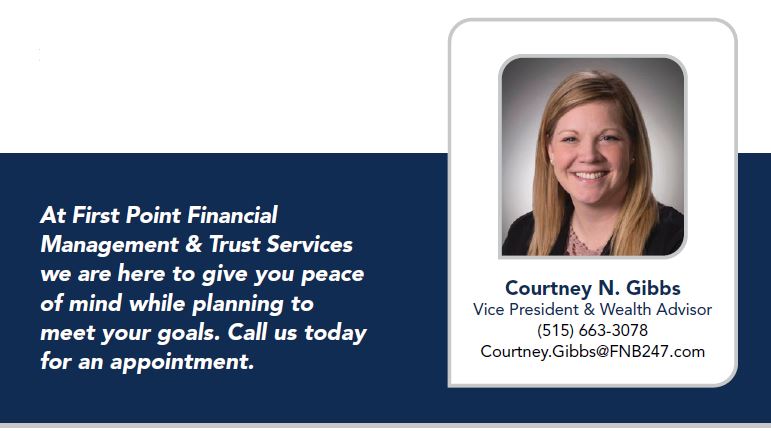Understanding Safe Deposit Box Ownership
Posted
on Wednesday, January 26, 2022
in
Financial Management & Trust Services
Safe deposit boxes offer a convenient way to safeguard valuables that do not need to be accessed frequently. It is common to store Wills and other financial documents in your safe deposit box; therefore, it is important for you to know the access requirements of your financial institution.
OWNERSHIP AND DESIGNATIONS
A safe deposit box may be owned as an individual or jointly. You may want to own one with your spouse, children, or a close family member.
During your lifetime, your safe deposit box can be accessed by you, a joint owner, or a Deputy designee. A Deputy is someone who can act on your behalf to access the box in your stead. The Deputy designation can be changed at any time by you with written notice to the bank. A Deputy’s authority ceases upon your death.
If you own your safe deposit box individually, you may wish to appoint a Death Designee. This person is authorized to access your box upon your death, without limitation. This can be the same person as the Deputy, or you can name someone else. This authority can be revoked at any time by you with written notice to the bank.
SHOULD I KEEP MY WILL IN A SAFE DEPOSIT BOX?
Your Will, and Financial and Health Powers of Attorney are important documents that should be protected. A bank safe deposit box is a good option to guard against fire, theft, loss, or simply for privacy or protection of these items and other valuables. Banks will typically issue two keys to owners of a safe deposit box. The keys should be kept in a safe place to avoid loss. If one key is lost, the bank will not replace the key. If both keys are lost, to obtain access to the safe deposit box, the bank must drill the box with the cost billed to the box owner. It is important to know that the contents of a safe deposit box are not insured for FDIC purposes.
WHAT HAPPENS TO MY SAFE DEPOSIT BOX CONTENTS UPON MY DEATH?
In accordance with Iowa law, the bank may permit the following persons to open, examine, and remove the contents of a safe deposit box of a deceased owner/lessee:
1. A co-owner/co-lessee of the safe deposit box.
2. A person designated in the lease to have access to the box upon the death of the lessee (Death Designee). This person must provide proof of death and personal identification to access the box.
3. An executor or administrator of an estate of a deceased owner/lessee, upon delivery of a certified copy of a Letter of Appointment to the bank.
4. A trustee/co-trustee/successor trustee of a trust created by the deceased owner/lessee.
In the absence of any authorized person to enter a safe deposit box, if a key is provided, two employees of the bank can enter the box. This may be necessary in order to remove the lessee’s Will in the event of death. If this occurs, the Will can be removed by the bank and delivered either to the court having jurisdiction over the testator’s estate, or to the attorney who drafted the Will.
It’s a good idea to include a discussion about your safe deposit box with your family and attorney as part of your estate planning process.
